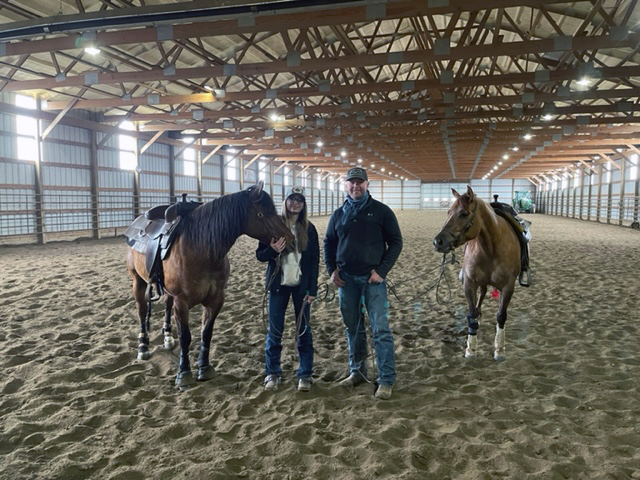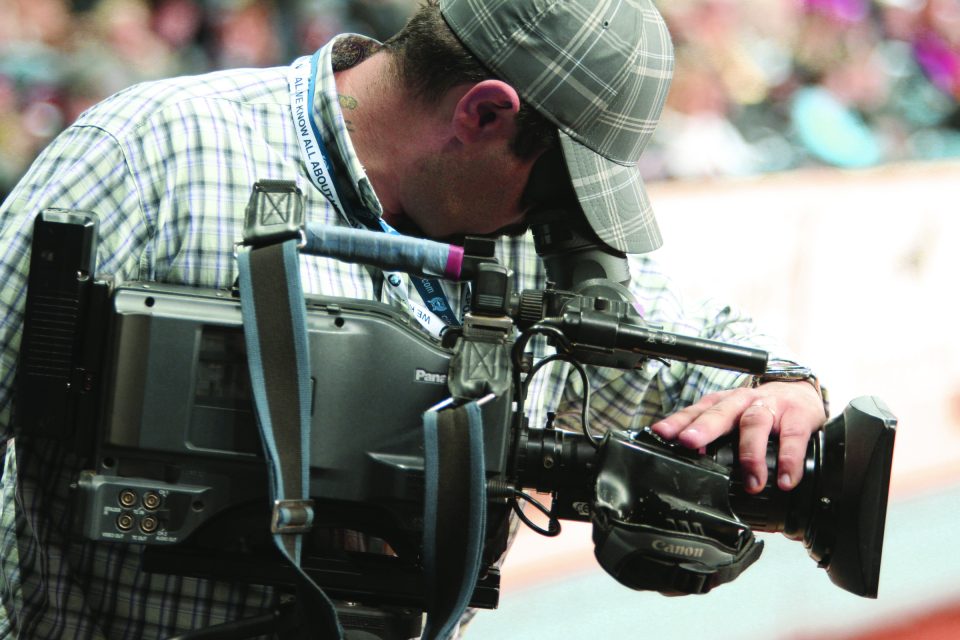Could your training program benefit from having lesson horses? This four-part series might help you say ‘yes’ to lesson horses.
By Katie Navarra

Nearly three years ago, an avid team-penning competitor approached NRHA Professional Ryan Anderson of Clyde Park, Montana, requesting an introduction to the sport of reining. Anderson maintains a half-dozen horses for lessons and invited the rider to take a few “test rides.” After a few rides, the team penner sold his penning horses and cattle and dove head-first into reining. Today, the penner-turned-reiner owns competitive reining horses, including a few broodmares that are in foal to big-name studs.
“He’s probably my best client, and I never would’ve connected with him if I didn’t have lesson horses available,” Anderson said about his successful relationship.
In a business where profit margins are slim, many trainers consider lesson horses too costly. There’s no denying that expenses accompany these horses, as they still need to be fed, vetted, and shod. That can be burdensome, especially for trainers who rent stalls in a commercial facility.
But other trainers view lesson horses as an invaluable revenue generator critical to the long-term viability of their businesses. Anderson believes that even one lesson horse can help any trainer cultivate new clients, generate new revenue, and encourage sustainability of the industry as a whole. Three other professionals—Anderson, Shawn Church, Michelle Chapman, and Michael Davis—explain how in this series of articles.
Part 1: Temporary to Permanent Riders
Part 2: The “Right” Horse
Part 3: Value-Added Benefits
Part 4: Right for You?
The “Right” Horse
Some trainers claim that finding the “right” horse for lessons is too difficult to make it worth the time. To purchase a finished horse that’s well-suited for a beginner, you can be looking at more than $10,000 just in horse flesh. When a trainer finds a horse that’s a good fit but super-talented, they often don’t want to risk “screwing up” the horse with a beginning rider.
Anderson acknowledges that’s quite an investment or a sacrifice to make for beginning riders. However, there are viable alternatives to finished reining horses.
“We use horses that our ranch or my dad owns,” Anderson said. “Right now, we have one lesson horse that my daughter will begin showing. Occasionally, we’ll also have a client who’s OK with us using his or her show horse in lessons.”
Family horses and retired show horses are the perfect candidates for Chapman’s lesson program that includes four to five horses for beginners to try.
“It’s as good for our horses as it is for the riders,” she said. “It keeps our seasoned horses fresher, because they have to think about the cues.”
“The lesson horses love it,” Davis agreed. “It gives them a chance to still be productive NRHA horses, even though they maybe can’t compete anymore.”
In Church’s business, he doesn’t maintain any horses specifically for lessons, but offers newcomers an opportunity to take lessons on for-sale horses in the barn. Not only does this arrangement afford his clients the opportunity to see if they connect with the horse they may purchase, but it also means Church can keep a good horse in his training program.
“If we have a nice sale horse we’d like to keep in our program, we use it for lessons,” Church shared. “About half the time, if a client has a chance to ride a sale horse in lessons, they end up purchasing the horse.”
Lesson horses are not necessarily a good fit for every business. That’s more because of the humans than the horses in most cases. Some people are really great horse trainers and others are really great coaches, but Chapman believes there is a big difference between the two specialties, and not every person can wear both hats. “I don’t think every trainer is wired to be a coach,” Chapman said.
Read the rest of this article at the links at the beginning of this post.



